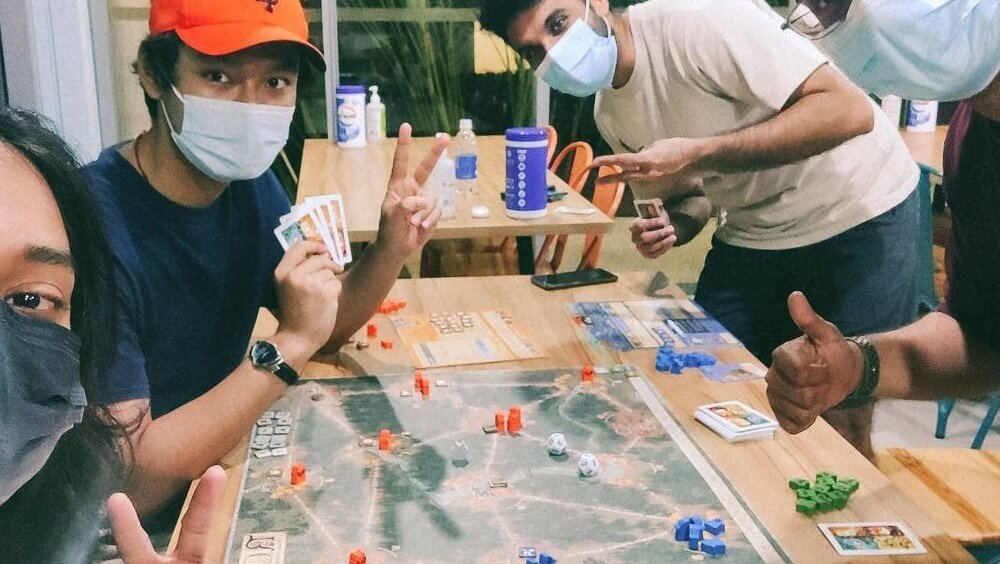
5 Tips on How to Live Your Best SMU Life at Prinsep Street Residences
Residential living can be exciting and fun, especially for students who have never experienced communal living or lived away from home. Unfortunately, residential living comes with its own set of challenges. Uday Sasthaa, a graduate at SMU School of Economics who was a resident at the Prinsep Street Residences (PSR), shares some tips on how to not just survive, but thrive at, residential living.
Residential living can be exciting and fun, especially for students who have never experienced communal living or lived apart from their families and the comforts of home. Not to mention, living near your university has huge up-sides: from being able to sleep in a little more to the ability to participate in a myriad of student activities. It’s no wonder many students speak fondly of residential living when recalling their university journey. Unfortunately, as thrilling as it can be, residential living comes with its own set of challenges.
Not only do you need to develop a whole lot of self-discipline, you’ll also need to start adapting to communal living and being a part of social settings beyond your own circle of friends.
Uday Sasthaa, a graduate of the Singapore Management University (SMU) School of Economics (SOE) who resided at the SMU Prinsep Street Residences (PSR), shares some tips on how to not just survive, but thrive, at residential living.
1. Ease into it
Diving headfirst into communal living could potentially be daunting for students who are more introverted and shy, so it’s important to take baby steps when it comes to getting involved in residential life. Making friends with your neighbours and small groups of residents is a great way to kick off your residential living as this can give you some friendly faces for when you get more involved in residence-wide activities.
Being new to Singapore at that time, Uday credits his apartment mates and orientation activities planned by the PSR management team for helping him acclimatised to his new living conditions.
“Some of my apartment mates were seniors and some of them, while being freshmen, had lived in Singapore their whole lives so they could show me when I can get good South Indian food. The orientation activities also helped got me closer to people outside of my apartment and I even found some good friends who were in my class which really made easing into the new life here more comfortable.”
2. Get involved in residential life
After you’ve gotten the hang of mingling, Uday encourages students to get involved in bigger scale or residence-wide activities.
“Just this past year we’ve had numerous social events and even a networking night with the head of a career accelerator platform. There were also challenges organised that required us to participate as a team of eight to ten people, which allows you to get to know other residents. During an Easter Egg Hunt my team and I came in first place and we won $200 worth of vouchers which we subsequently spent on a hotpot dinner,” Uday recalls.

“The events are a fun way to interact with people and make new friends. Another plus point of such events is that food is almost always a guarantee – and the organisers do try to cater to different dietary options (such as pescatarian, vegan, etc). Being university students we are unlikely to turn down free food, plus these meals make perfect ways to end off an afternoon or evening of fun activities!”
3. Cultivate self-discipline
Living away from home doesn’t mean you should go completely hog-wild now that you’re far away from parental supervision. From managing your time well and making sure you stay on top of your work to juggling residential life and commitments, having freedom also means you’re now responsible for not abusing it.
“Self-discipline is one of the most important things I had to learn after I started to live away from my family. You can’t stay up late gaming every night, you can’t buy everything you see, and you have to start taking care of yourself, because it’s important to have the self-discipline to realise that there are going to be sacrifices for every decision that you make.”
“In my first semester, where I didn’t have anyone pushing me to study and revise my work, I became a lot more relaxed and started to take thing too easily, particularly with my homework and assignments. I did my work at the last minute, and it took me a while to notice that this was affecting the quality of my submissions negatively. I realised that I owed it to myself and my family who trusted me to live alone to pick up the slack,” Uday points out.
4. Track your activities
One great way to stay on top of everything is to track your activities diligently. Instead of sticking a bunch of Post-It notes on your corkboard that are only going to confuse you, use an app, Google calendar or even an Excel sheet to make sure your time is being maximised.

“I found that Google Calendar is a very useful tool in keeping my schedule organised. I simply put down all my class timings, CCAs and other activities in it and it sends me reminders every now and then. With this, I can plan my week in advance and I found myself to be more productive,” Uday shares.
With lessons, deadlines and a brand new social life to juggle, prioritising becomes an all-important talent to muster.
“I try to balance the amount of time I spend studying and having fun. But there have been times where I’ve had to sacrifice leisure activities for weeks in order to accomplish other goals, such as submitting an assignment on time.”
5. Setting up a home away from home
Finally, it’s not uncommon for students to feel homesick when living in a student residence. After living in the comfort of your own home for nearly two decades, the thrill of the sudden freedom will eventually die off and you might start craving the presence of your parents and siblings, as well as home-cooked food.
To tackle this problem, one simple solution is to indulge in activities that remind you of home. This not only helps ease the homesickness, but can potentially be a stress-reliever in trying times.
Uday explains: “Tamil movies help me feel less homesick. On days I really missed home, I would go to a chillout corner in PSR – an area where residents relax – and connect my laptop to the television there to watch my favourite Tamil movies. I found that familiar cinema helps me cope with missing home, especially since my sister and I would avidly discuss the movies after we’ve watched them.”

Food is another remedy for nursing homesickness for many, albeit temporarily.
“PSR’s location is amazingly central, and as a result I’ve found myself in the proximity of multiple places famous for their unique cuisine. For example, I can simply walk to Little India to find a plethora of choices of South Indian food whenever I miss homecooked food. Similarly, my Burmese friend seeks out Peninsula Plaza for his comfort food from home. He’s even taken me a few times (the Burmese Biryani is a must-try),” adds Uday.
Residential living can sometimes feel like a constant battle – fighting off homesickness, getting used to communal living, as well as juggling school work and your sudden freedom, so it can be both an exciting and daunting experience. However, with the right amount of self-discipline and a little patience until you get into the flow of residential living, you will most definitely find it to be an eye-opening and memorable university experience.
Find out more about residential living at the SMU Prinsep Street Residences here.




